
Students attend the 2025 US Study Abroad Exhibition - Photo: TRONG NHAN
From 2025, Australia will introduce a national cap on international students, the National Planning Level (NPL), which aims to limit the total number of new study places. In 2025, Australia's cap was 270,000 places. However, in 2026, this number will increase to 295,000 places according to the latest announcement, an increase of 25,000 places compared to last year.
Australia: positive signals
Mr. Mai Viet Thuy - founding member of University Preparation College (UPC) in Australia - said this is a positive signal for studying in Australia in 2026. Not to mention that Vietnam was recently officially upgraded by Australia in the student visa review system, from Level 3 to Level 2. He explained that for countries ranked at Level 2 - meaning medium risk - students can be exempted or have their financial proof part shortened.
Meanwhile, students from level 3 countries must provide full documents proving financial resources, family income, tuition and living expenses, and must have a valid English certificate. Level 2 students' applications are usually processed faster, with fewer additional requests or interviews, while level 3 students are more likely to have their application process extended or even rejected if their study plan is not convincing enough.
"Upgrading from level 3 to level 2 is good news for Vietnamese students, meaning a smoother visa application process, faster approval times and higher chances of success. It is expected that the number of Vietnamese students coming to Australia will increase in 2026 after this change," he said.
According to data released by the Australian Department of Education in April 2025, Vietnam has about 33,380 international students studying in Australia, ranking fourth after China, India and Nepal.
Canada: Prepare well in the context of tightening immigration
Under pressure from housing and the goal of tightening the integrity of the system, Canada continues to maintain an "entry control" mechanism for international students. In 2025, the Immigration, Refugees and Citizenship (IRCC) sets a maximum of 437,000 new study permits, a 10% reduction from the 2024 limit, and requires most applications to be accompanied by a letter of endorsement (PAL) to ensure that each admission slot has been "registered" by the province within the quota.
Some universities and colleges in Canada announced that the control range will last until 2026, which means that the 2026 intakes will still be subject to the ceiling and PAL mechanism, although IRCC has not announced the national ceiling figure for 2026. In addition, after increasing the minimum living allowance to 20,635 CAD from January 1, 2024 (in addition to first-year tuition), on September 1, 2025, IRCC increased it by 2,260 CAD, bringing the total minimum that international students must prove to 22,895 CAD for one applicant.
Mr. Nguyen Viet Anh, admissions representative of the University of New Brunswick (Canada) in Vietnam, said that studying abroad is still one of the important channels to help Canada find high-quality human resources, so if you are well prepared, there is nothing to worry about, Canada always welcomes you.
According to him, Vietnamese candidates should start preparing their applications 9-12 months before the admission period, focusing on GPA, study plan and especially prerequisite subjects. "Many schools carefully consider the foundation subjects. For example, if you want to study information technology, you should have good scores in math and physics to demonstrate academic ability," he said.
For those aiming for scholarships, Mr. Viet Anh encourages them to try to improve their overall scores and core subjects because even a few percentage points difference can make a difference in the competition. In addition to academic performance, extracurricular activities are also a factor that many Canadian schools highly value.
US: Schools Try to Maintain Stability
Mr. Ding Huang - Director of Admissions for Asia at St. John's University (USA) - said that the admission policy for international students of many schools remains stable. The three common admission routes include direct admission, ELITE program to support English enhancement in parallel with specialized courses. Finally, there is the conditional admission form for candidates who do not meet the language standards.
He advised that the most important thing is to start preparing early, from choosing a major, improving English skills to carefully studying the application requirements of each school. Do not wait until you have information about your visa to start applying because the process of preparing academics, essays, and financial documents takes at least half a year.
Similarly, Ms. Chitra Saini - Director of Admissions for Southeast Asia at Southern Utah University (SUU) - commented that the international admissions policy in the US is generally stable and flexible despite minor adjustments in visa procedures.
Students can apply directly if they meet the academic requirements or take an intensive English program before moving on to the main course. Many schools also allow international students to transfer credits from foreign training institutions to shorten the study time and reduce costs.
European countries: are digitizing the entire visa procedure
In Germany, since the beginning of 2025, an online visa application system has been implemented, allowing students to submit applications online instead of traditional documents. However, the financial proof level has also been adjusted to increase to 11,904 euros/year with a regulation of working a maximum of 20 hours/week.
The UK plans to shorten the duration of stay after graduation under the Graduate visa from 2 years to 18 months and tighten the criteria for schools allowed to sponsor international students. Meanwhile, the Netherlands continues to maintain an open door policy but raises the living requirement to more than 1,094 euros/month, at the same time requiring students to achieve a minimum academic progress to keep their residence permit.
Many European countries have in common that they are digitizing the entire visa process, speeding up the processing of applications and reducing fraud, but also tightening financial and academic standards. Experts say that 2026 will be the period when international students need to be more prepared in terms of language skills, study plans and financial proof if they want to conquer European universities.
Source: https://tuoitre.vn/du-hoc-uc-my-canada-cac-nuoc-chau-au-nam-2026-ra-sao-20251009214706227.htm



![[Photo] General Secretary attends the parade to celebrate the 80th anniversary of the founding of the Korean Workers' Party](https://vphoto.vietnam.vn/thumb/1200x675/vietnam/resource/IMAGE/2025/10/11/1760150039564_vna-potal-tong-bi-thu-du-le-duyet-binh-ky-niem-80-nam-thanh-lap-dang-lao-dong-trieu-tien-8331994-jpg.webp)
![[Photo] Discover unique experiences at the first World Cultural Festival](https://vphoto.vietnam.vn/thumb/1200x675/vietnam/resource/IMAGE/2025/10/11/1760198064937_le-hoi-van-hoa-4199-3623-jpg.webp)
![[Photo] Opening of the World Cultural Festival in Hanoi](https://vphoto.vietnam.vn/thumb/1200x675/vietnam/resource/IMAGE/2025/10/10/1760113426728_ndo_br_lehoi-khaimac-jpg.webp)






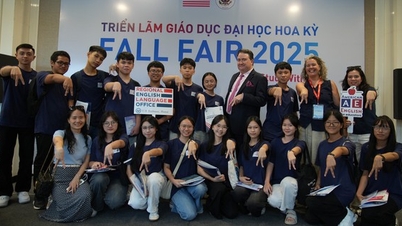















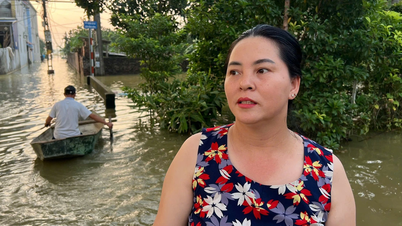
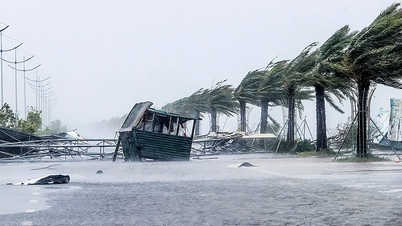
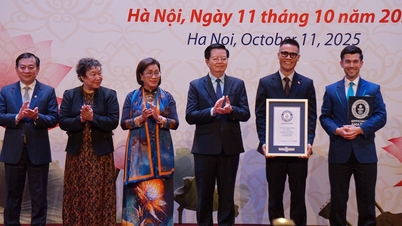
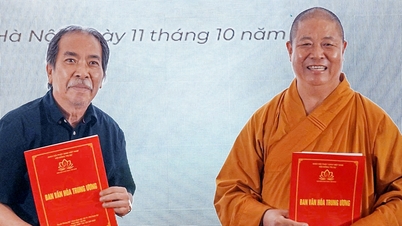


![[Photo] Ho Chi Minh City is brilliant with flags and flowers on the eve of the 1st Party Congress, term 2025-2030](https://vphoto.vietnam.vn/thumb/1200x675/vietnam/resource/IMAGE/2025/10/10/1760102923219_ndo_br_thiet-ke-chua-co-ten-43-png.webp)
































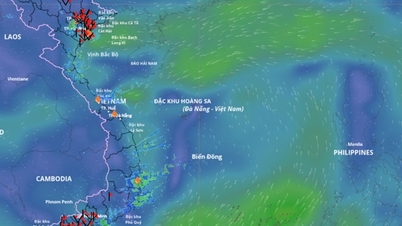
































Comment (0)